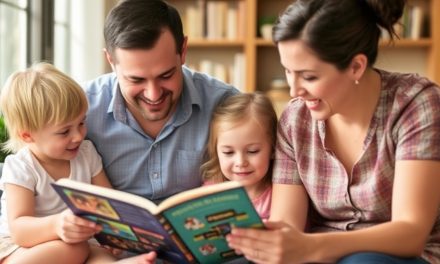In today's fast-paced world, stress and anxiety have become common experiences for people of all ages, including children.
It’s the responsibility of parents, educators, and caregivers to help kids cope with such challenges. They can do this by gaining a deeper understanding of the differences between stress/anxiety and recognizing their causes and triggers.
This comprehensive guide will delve into the nuances of stress and anxiety in kids. It will explore the practical strategies to support children in managing these emotions.
Join us as we navigate the complex landscape of childhood stress and anxiety. We will equip you with the knowledge and tools to support the well-being of the young ones in your care.
What Is Stress and Anxiety?
Stress and anxiety are common emotions experienced by children, which significantly impact their mental health and well-being. Children may face various stressors and triggers, leading to feelings of anxiety and distress.
These emotions typically arise from:
- Academic pressure
- Social interactions
- Family dynamics
- Environmental factors
If left unaddressed, chronic stress and anxiety can disrupt a child's emotional regulation. In fact, it can affect their ability to concentrate, interact with others, and manage their emotions.
Therefore, adults need to recognize signs of stress and anxiety in children and provide them with necessary coping strategies. This is necessary to build their resilience and emotional well-being.
How to Help Kids Cope with Stress and Anxiety?
Assisting kids in coping with stress and anxiety requires a comprehensive approach. It should incorporate various techniques and strategies for addressing their emotional well-being. Empowering children with effective coping mechanisms is essential for promoting resilience and mental wellness.
Encouraging children to express their emotions through art therapy, journaling, or talking to a trusted adult can provide a positive outlet for their feelings. Teaching mindfulness and relaxation techniques might also help alleviate stress and anxiety. This would entail deep breathing exercises and progressive muscle relaxation.
Building coping skills through positive affirmations, social support, and problem-solving strategies is vital. It equips children with the tools to navigate challenges and build emotional resilience.
Encourage Open Communication
Encouraging open communication with kids is a foundational element in helping them cope with stress and anxiety. More specifically, you need to establish an environment of trust. This will enable children to express their emotions and concerns effectively, fostering their mental well-being.
This supportive and empathetic approach can have a profound impact on children's overall emotional development. By actively listening and validating their feelings, parents can instill confidence and resilience in their children.
Engaging in open conversations about emotions and mental health sets the stage for a healthy relationship with their feelings. It also enhances their ability to navigate challenges. Strive to create a safe space for children to verbalize their thoughts. This helps in identifying any underlying issues early, promoting early intervention and overall mental well-being.
Teach Relaxation Techniques
Teaching relaxation techniques to kids is a valuable strategy for helping them cope with stress and anxiety. These mindfulness activities significantly contribute to their emotional regulation and well-being.
By introducing simple breathing techniques, such as belly breathing or flower breathing, children can learn how to calm their minds and bodies in times of distress. Other calming activities that are great for promoting relaxation and alleviating tension include:
- Coloring
- Gentle stretching
- Listening to peaceful music
Teaching children to practice gratitude and positive affirmations cultivates a mindset of resilience and emotional strength. These techniques foster a sense of self-awareness. They enable kids to navigate challenging emotions with greater ease.
Promote Healthy Habits
Promoting healthy habits among kids forms a foundational aspect of learning how to manage stress and anxiety. Encouraging routines that prioritize physical and mental wellness contributes to their resilience and overall well-being.
Children benefit greatly when they are exposed to balanced lifestyles. Such a lifestyle encompasses:
- Regular exercise
- Nutritious meals
- Adequate sleep
- Mindfulness practices
These healthy routines lay the groundwork for instilling valuable self-care habits. They help children develop a strong sense of emotional regulation and stress management.
Fostering these habits from a young age empowers children to navigate the challenges of daily life. They’re able to do so with a greater sense of confidence and mental well-being.
Create a Safe and Supportive Environment
Establishing a safe and supportive environment is instrumental in nurturing kids’ coping mechanisms for stress and anxiety. It’s important to provide a nurturing and empathetic family and social environment. This is what fosters the development of effective emotional coping strategies in children.
Caregivers and community members must demonstrate empathy and understanding towards children's emotions. This will aid in the creation of a secure and supportive atmosphere. By fostering open communication and validating children's feelings, they learn to express themselves freely.
Offering consistent routines, opportunities for play, and access to positive role models is also necessary. These contribute to a resilient emotional framework in children, enabling them to navigate life's challenges with strength and adaptability.
Conclusion
Seeing your child experience stress and anxiety is never easy. Thankfully, there are a few things you can do to help them cope with these situations effectively. Start by creating open channels of communication. Next, teach them some relaxation techniques and encourage a healthy lifestyle. Lastly, don’t forget to provide a safe and supportive environment.
If you’re looking for more parenting advice, be sure to visit our website: Marvelus Kids.









